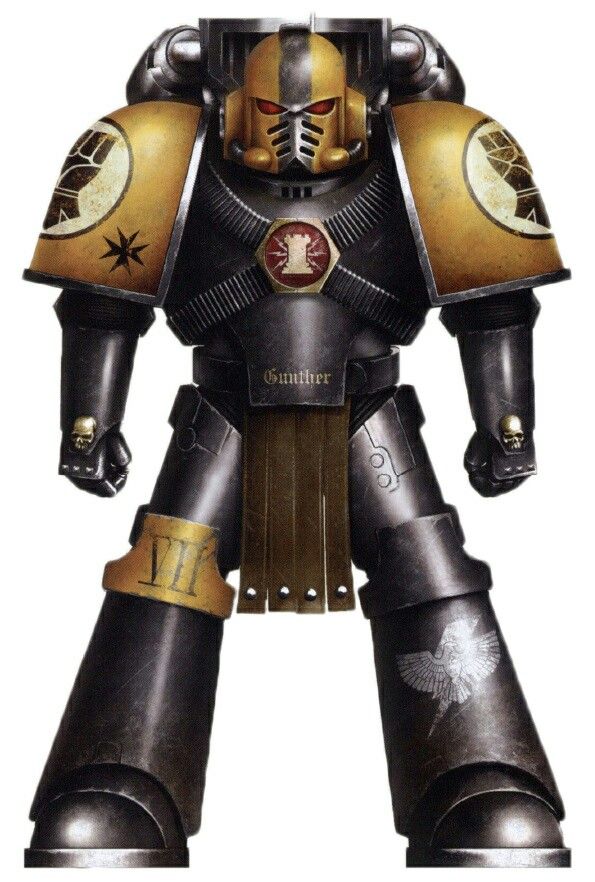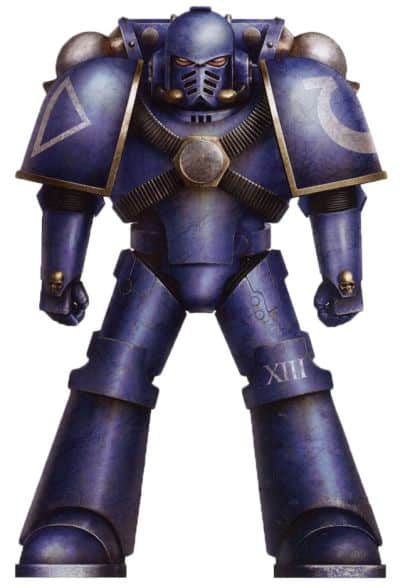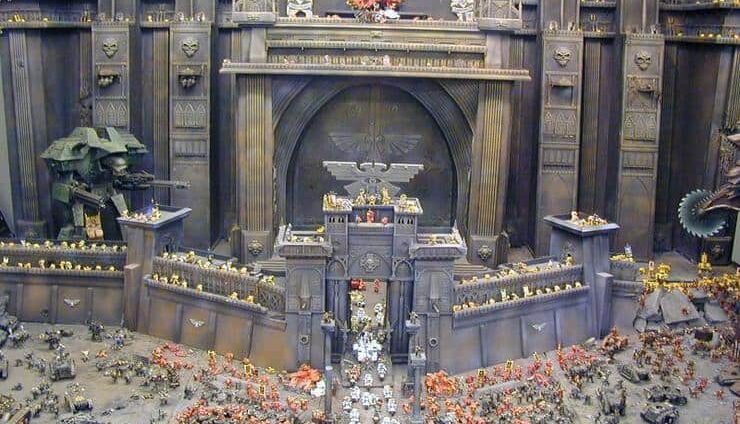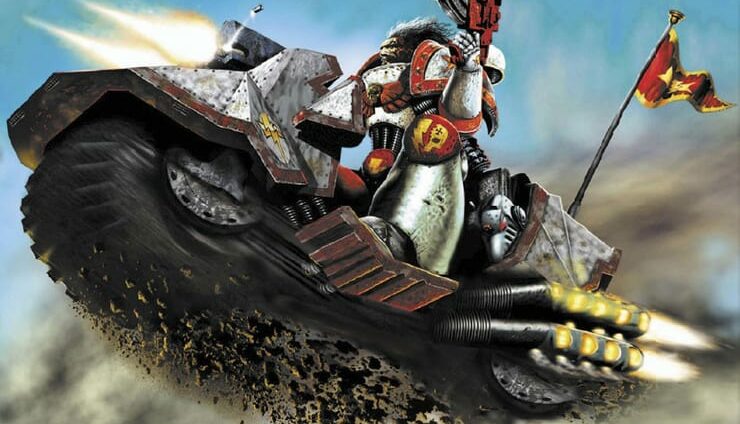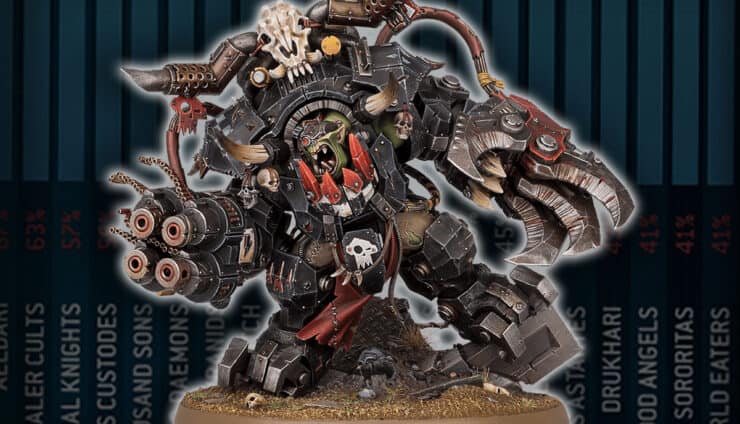As the Great Crusade was ending, the the Mark III armor was wearing out. A new variant was developed to carry the Astartes forward.
Via our good friends at Lexicanum
Power armor is fully sealed, isolating the wearer from the outside environment and protecting him from gas weapons and harsh atmospheres. It also commonly includes numerous auxiliary systems such as communicators and auto-senses. The backpack contains the main power plant, environmental system and additional stabilizers. Whilst power armor is most commonly associated with the Adeptus Astartes, the Sisters of Battle and many Inquisitors also use powered armor of one sort or another.
Typically however these armors may not contain the same strength-enhancing properties or life-support functions of Space Marine power armor, nor do they provide the same amount of protection. All armor may further be augmented by various artifacts, relics and enhancements such as pauldrons and greaves. Power armour has been in use since before the Age of the Imperium, from the techno-barbarians of Earth to the original Space Marines created by the Emperor. Over the history of the Imperium, power armor has developed into many different forms. Need, circumstances and recovery of new materials and technology has shaped the armor’s evolution.
At the end of the Great Crusade the Space Marines found their armor wearing out. While some Legions chose to continue local production and maintenance, the Adeptus Mechanicus of Mars started to design a new variant for centralized issue, which was to be designated the Mark IV or Imperial Maximus suit. At the Mark IV stage of the power armor development, Space Marine armor began to take on an appearance recognizable as contemporary power armor, the main change being the abandonment of the separate abutting plates in favor of larger inflexible armor casings incorporating flexible joints. This marginally reduced mobility but was far easier to produce and maintain.
Technical secrets recovered on newly conquered worlds allowed Mars to develop the more efficient armor, improving the quality of protection and reducing the suit’s weight at the same time. Improved armoring of the power cables allowed the main arm and chest supply to be safely relocated to the exterior of the armor, while the use of new material reduced the size and number of cables.
The helmet was a completely new design, the basic shape inspired by the sweeping front of the Mark III. In Mark IV and later versions the helmet is no longer fixed, but moves with the wearer’s head. This represented the constructors increasing experience with neural connector gear and the new materials which flooded into the Martian workshops as the Crusade progressed. Mark IV armor was envisioned at the time to be the ultimate and final type of Space Marine armor, able to offer the best protection in a variety of conditions. Many of the Space Marine Legions were entirely or partially re-equipped with it, although the order of which Legions received the armor would shortly prove to be of significance. As a result of its widespread production and use prior to and during the Horus Heresy, Mark IV suits are the most common of the pre-Heresy armor Marks still in service during the 41st Millennium. Notably, a few Chapters, such as the Red Scorpions and Iron Hands, are still capable of producing new Mark IV suits in the 41st millennium.

